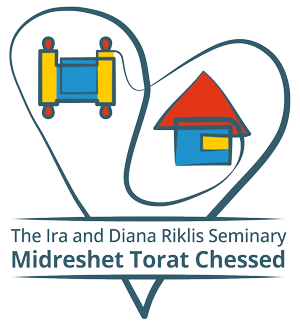
24 Feb MTC Highlights: Parshat Vayakhel

Rav Yehoshua Felberg - Educator
Parshat Vayakhel
This week’s parsha takes place in the aftermath of the chet haegel, the sin of the golden calf, and is an important reminder about the unbreakable bond between the Jewish people and their creator, the Holy One Blessed Be He. Rather than further reprimanding, Hashem encourages klal Yisrael to complete their divinely appointed task, the construction and sanctification of the mishkan.
Reading the text of the parsha, we are presented with an interesting anomaly in the way the information is presented. Although all of the details of the mishkan are provided, the instruction actually begins with a reminder of the command to observe the shabbat and not to kindle a fire in our dwellings on the holy day:
שמות לה:ב-ג
“שֵׁ֣שֶׁת יָמִים֘ תֵּֽעָשֶׂ֣ה מְלָאכָה֒ וּבַיּ֣וֹם הַשְּׁבִיעִ֗י יִֽהְיֶ֨ה לָכֶ֥ם קֹ֛דֶשׁ שַׁבַּ֥ת שַׁבָּת֖וֹן לַֽיהֹוָ֑ה כָּל־הָֽעֹשֶׂ֥ה ב֛וֹ מְלָאכָ֖ה יוּמָֽת: לֹֽא־תְבַֽעֲר֣וּ אֵ֔שׁ בְּכֹ֖ל מֽשְׁבֹֽתֵיכֶ֑ם בְּי֖וֹם הַשַּׁבָּֽת:”
Rashi explains the reason for the Torah mentioning the command to observe the shabbat here is in order to clarify for klal Yisrael that work on the mishkan does not supersede the command to keep the shabbat. Although the command to build the mishkan is vital to restoring our relationship with Hashem after the tragic mistake of the golden calf, when shabbat comes, the Jewish people rests, no matter what.
As ever, we can take away personal lessons about how to lead our lives from the way Hashem conducts himself in his relationship with his nation, the Jewish people. When we feel betrayed, cheated and the victim of others our first thought is often of the other person having to take steps to restore that relationship. Grand gestures are, indeed, sometimes a prerequisite to fixing a broken relationship. However, that obligation cannot come at the expense of someone’s basic needs and practices. A poor man cannot be expected to pay more than he can afford, the lame man cannot be expected to run nor the dumb man expected to speak. So too the need to appease Hashem, notwithstanding the sin of the golden calf, comes second to the need for the Jewish people to preserve and sanctify the day of rest.
Shabbatot today, in our wealthy and successful communities, can, in fact, become the most tiring day of the week. With a long davening, multiple kiddushim, opportunities for shiurim, kumsitz, youth movement activities and getting together for lavish meals people end up looking forward to motzei shabbat as a time that they can actually relax and unwind! However, clearly, this was never the intention of shabbat.
As the Ramban teaches in his commentary on the chumash, one could, in theory, open their store on shabbat and find a way to cheat the system so as to enable you to carry out your business on the holy day without performing any melacha. However, should one have done so, says the Ramban, even if no technical prohibition of shabbat had been violated, the principle of “תשבות”, resting on shabbat would have, in fact, been transgressed.
Shabbat as a symbol of the relationship between Hashem and the Jewish people is predicated on shabbat being an opportunity to actually rest. It is there for us to take time to learn, reflect and recover from the busy week. Even something as important as the building of the mishkan, a creation of a dwelling place for Hashem in the physical world, and a symbol of the restoration of what Martin Buber calls the “I – thou” relationship does not take priority over the shabbat. How much more so we should work to use this time in our days to rest, recover and genuinely treat shabbat as the day of rest it is intended to be.
We will conclude with the words of the prophet Isaiah, setting out with beautiful clarity the obligation of resting on the shabbat day:
“If you restrain your steps because of Shabbat and refrain from doing your own business on My holy day, if you consider Shabbat a delight and honor God’s holy day by not going about your daily business, conducting your usual affairs or discussing mundane matters, then you will delight in God…” (58:13-14)
May we all be blessed to delight in Hashem on our shabbatot.
Shabbat shalom

Student Reflection
Gabriela Ceasar - SAR, NY - Englewood, NJ
So far MTC has been action packed with many Tiyulim, especially this week!! MTC loves to give us the opportunity to travel our homeland and do activities to learn more about our connection to Israel and what our ancestors went through to appreciate how lucky we are!!
Sunday night instead of night Seder we had such an incredible opportunity to learn with our parents Via FaceTime about the topic of Simcha- Joy. We were given a few pesukim to read together with our parents. what an amazing way to get into the spirit of purim which embodies simcha…am I right?!
Tuesday we had a trip to Gush Etzion, where we went to the arugot farm and experienced the most vast and magical views. We had the privilege of learning from one of the owners and current residents, Ari, about how strongly and deeply he feels connected to the the land.
Afterwards, we went to the most delicious bakery and were treated to donuts and coffee (shoutout to Ahuva Favish’s dad).
Wednesday we had the chance to experience a Tzanz community wedding because the granddaughter of the chief rabbi got married and invited MTC. We also had the amazing opportunity to experience a bar mitzvah in our very own Beit Elazraki! It was so nice to see all the smiles on the boys faces and how exciting it was to celebrate together!
I had an amazing week and can’t wait to see what’s to come!! Never a boring week here in MTC. I am so happy to have been blessed with the opportunity to spend my gap year here.











































